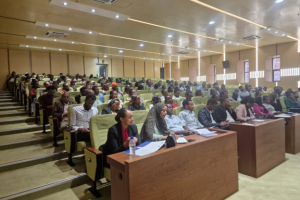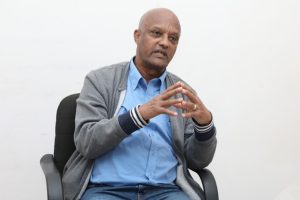
In science and technology, women are rarely involved. Reasons for this are multifaceted social impositions. Unlike this, outstanding females have been emerging here that achieve their dreams dealing with challenges.
The Diagnostic and Statistical Manual of Mental Disorders (DSM), in an article titled “The world needs science and science needs women;” stated that over the past 15 years, the global community has made a lot of effort in inspiring and engaging women and girls in science. Yet there is much more room for women and girls to participate fully.
Feike Sijbesma, CEO and Chairman of DSM’s Managing Board said: “I don’t want to live in a world that is dominated and dictated by men. And it would be stupid to forget 50 percent of the global workforce that can contribute.’’
In the course of nurturing family and society and making a nation as well, motherhood takes the lion share. Participating in science and technology and registering better outcome above raising a child in a good manner, is a double victory for a woman. Women’s participation in science and technology advances the contribution of the sector.
Without being stumbled in the race to make her family successful, achieving success for a woman by deploying opportunities and competing with men is a clear indication that women are very strong and persistent. In doing so, women become founding members of society, an engine for development, history makers and responsible for shaping generation.
Nowadays, Ethiopia is producing successful females that are registering satisfying outcomes being engaged in science and technology either with self-effort or through support from the surrounding.
Although there is a small number of female researchers and teachers in Ethiopia’s higher education institutions, they are still recording significant results in the field of research. In modern times, countries are increasingly focusing on the science and technology sector to carry out a wide range of activities efficiently and in short order, to increase production and service and to simplify life.
Ethiopia is working hard to make a positive impact to sustain the change in the sector. Women, who are part of the community, are taking part in science and technology, with special attention to the sector. Currently, they are recording successes with the support of government and personal effort.
Among the successful women is Tsega Birhane (Ph.D.), the only female astrophysicist that has made a huge impact in the sector. She is diligent and effective in her work. However, her success was not due to an enabling situation. Rather, her ambitions and dreams have put her on success.
Tsega was born and brought up in Adwa, the town of Tigray. She attended her primary secondary educations in her home town Mekele. Completing high school with great results, she joined Addis Ababa University and gained her first degree in physics. Continuing with her study there, she received a second degree in nuclear physics.
Following four years’ teaching service at Mekele University, she was offered a third-degree study by joint agreement between Addis Ababa University and NASA and graduated with great distinction. She did her dissertation on Solar Astrology. The results of her study are far simpler to implement and can have major implications for the sector.
Known for her involvement in various fields of teaching, research and science, Dr. Tsega has served as a physics teacher and researcher at the University of Mekelle, director of the Institute for Gender and Environmental Studies.
Dr. Tsega said that she faced many challenges in her school life. Specifically, she recounts her experiences in her community during her time at school. When the community imposed pressure against her to have children instead of attending school, she often planned to leave the family.
Dr. Tsega, who claims to be admitted by the University of Addis Ababa because of great distinction, chose physics from the available fields of study to pursue her dream of a better career in science and research.
“I was the only woman who joined the class at the time,” said Dr. Tsega. But others used to ask ‘How can a girl choose physics? ,’ based on a misconception that a female is less capable than male.
“There is still a lot to be done to change the social outlook,” she noted and particularly, this is a major reason why women are not prominent in the science and technology and have reduced their participation. Adding she said, “Study and research do not differentiate gender,” emphasizing that women and men should equally be involved in the field, as long as science provides a solution for a social problem.
As to Dr. Tsega, women, in particular, should largely participate in the sector with enabling conditions. If women personally try to play a significant role in science and research and given an opportunity that pays for their efforts, they will be able to score better.
Dr. Tsega’s ideas and dreams for the future are enormous and her destination is great. “When Ethiopia starts launching a rocket, I want to be a part of that and a major participant,” she said.
Special attention is needed for women’s multifaceted participation as to her recognizing development that excludes women is unthinkable. Having this in mind, government and concerned bodies should consolidate their support and follow up, she suggested.
The Ethiopian Herald December17, 2019
BY BACHA ZEWDIE




